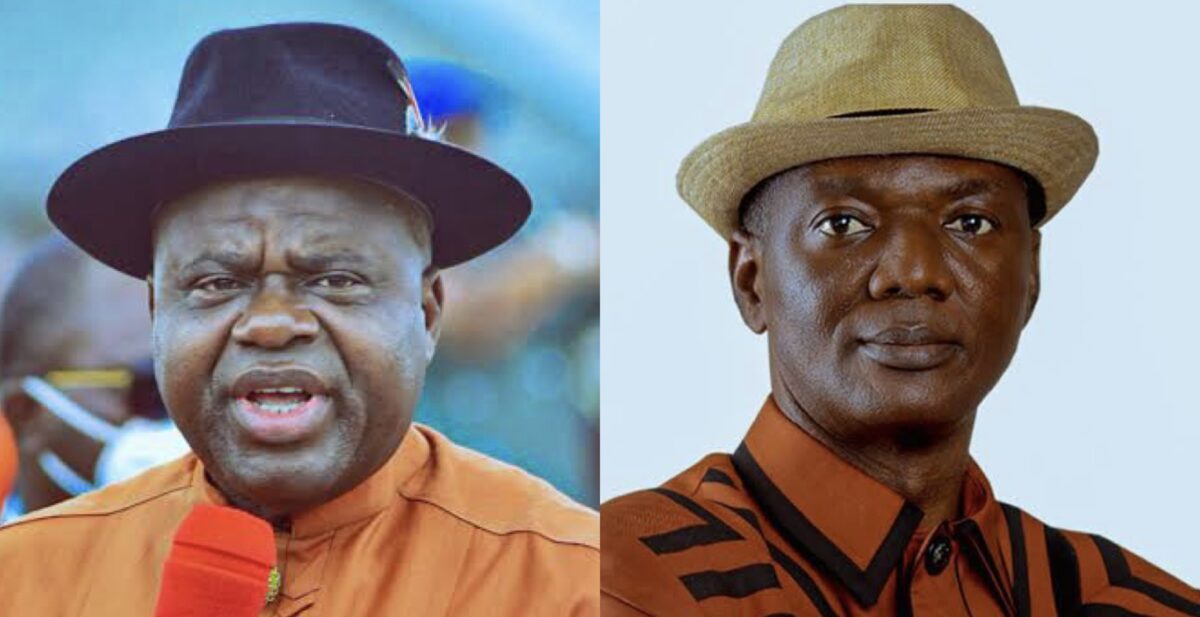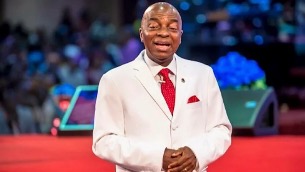Politics
Pensioner couple go to court over Starmer’s winter fuel payment cut
Two pensioners are seeking to take the Scottish and UK governments to court over Labour’s cut to the winter fuel payment.
Peter and Florence Fanning, from North Lanarkshire, have raised proceedings against the Scottish Government and the UK Work and Pensions Secretary over the policy.
Following Labour’s election landslide, emboldened Chancellor Rachel Reeves announced the winter fuel payment – which had previously been universal – will only be available to those on pension credit or other means-tested benefits this year.
The decision led to the Scottish Government – which was due to take control over a similar payment through the devolved Social Security Scotland but has since announced a delay – to follow Prime Minister Keir Starmer‘s lead.
The judicial review – which has been raised at the Court of Session – now requires a judge’s approval to move to a hearing on the merits, with the Govan Law Centre – which is helping the Coatbridge couple in their case – seeking to ensure a decision can be handed down before the winter.

Peter and Florence Fanning, from North Lanarkshire, are seeking to take the Scottish and UK governments to court over Labour’s cut to the winter fuel payment

Following Labour’s election landslide, Sir Keir Starmer’s government announced the winter fuel payment – which had previously been universal – will only be available to those on pension credit or other means-tested benefits this year

Joining the couple at a press conference today, former First Minister Alex Salmond (left) said: ‘The Scottish Government, instead of meekly accepting this, should have challenged it’
The Fannings’ case asks the court to rule on whether the cut was unlawful, which would then allow the petitioners to ask the court to, in effect, set aside the policy and restore the winter fuel payment to all.
Speaking at a press conference in Edinburgh today, Mr Fanning, 73, said: ‘We intend to sue both the London and Scottish governments, since both are guilty through action and inaction, of damaging the welfare of pensioners.
‘We are hoping to be successful, given the manifest injustice involved, however, my work as a trade unionist and shop steward has taught me that some battles are worth fighting regardless of the outcome – I believe this is one such battle.’
The case’s argument rests on the accusation both governments failed to adequately consult with those of pension age on the change and did not release an equality impact assessment on the changes.
A freedom of information request revealed an abridged version of such an assessment had been carried out by the Department for Work and Pensions (DWP), with the UK Government arguing a full study was not required.
Former Scottish first minister and current Alba Party leader Alex Salmond was instrumental in putting the Fannings in touch with the Govan Law Centre ahead of the action being raised.
Joining them at the press conference he said every person in Scotland ‘should be grateful’ to the Fannings for raising the action, which he said should have been taken forward by the Scottish Government in the first instance.
Pointing to analysis by the Labour Party in 2017 – which suggested 4,000 people could die if the winter fuel payment was cut – Mr Salmond claimed it would be ‘reprehensible’ for the UK Government not to undertake an equality impact assessment because such a figure would be made public.
He added: ‘The Scottish Government, instead of meekly accepting this, should have challenged it.
‘They should have stood up for pensioners and stood up for the people as opposed to meekly towing the line that was coming from Westminster.’
The former first minister added that while it would be ‘the most enormous humiliation’ for the governments to lose the case: ‘I wonder is that as bad as the humiliation if the health service in Scotland and England can cope with the health impacts of what they’re doing?’
Rachel Moon, the instructing solicitor and a partner at Govan Law Centre, said: ‘Quite simply, [government] should have considered this rigorously.
‘This policy and the decisions taken affect those with protected characteristics, including age and disability, and it affects 10 million people.’

The legal challenge follows unions voting against the party at Labour’s annual conference. Unite General Secretary Sharon Graham is seen making her speech against the bill

But insisting MPs ‘don’t have the luxury of ducking the difficult choices and decisions’, Health Secretary Wes Streeting said the government would plough on with the policy
The legal challenge follows the government being embarrassed at Labour’s annual party conference, where trade unions said they want to axe the bill in a non-binding vote.
However, Sir Keir ignored the internal party revolt as he rounded off the conference week.
Despite the humiliating vote result, party chiefs and Cabinet ministers insisted the government would plough on with the policy.
Health Secretary Wes Streeting said he and fellow Labour MPs ‘don’t have the luxury of ducking the difficult choices and decisions’, as he blamed a £22billion ‘black hole’ left in the public finances by the Tories.
Politics
Breaking: Diri Orders Autopsy on Bayelsa Deputy Governor’s Death, Warns Against Politicisation

Bayelsa State Governor, Senator Douye Diri, has ordered an autopsy to determine the cause of death of the state’s Deputy Governor, Lawrence Ewhrudjakpo.
Governor Diri gave the directive on Saturday while receiving former President Goodluck Jonathan at the Government House in Yenagoa.
Reacting to the incident, the governor condemned what he described as widespread misinformation and speculation on social media, warning against any attempt to politicise the deputy governor’s death.
“I want to make an appeal. I have seen people politicise his death. In Ijaw land, there is no enmity in death. Let nobody politicise the passing of our dearly beloved deputy governor,” Diri said.
“If anyone truly loves him, this is the time to show it. I have directed that an autopsy be carried out to reveal the cause of his death. There is a lot of nonsense going on on social media.”
The governor further urged the public to focus on mourning and honouring the late deputy governor, noting that the state government had declared three working days of mourning in his honour.
“If anyone is issuing statements to eulogise him, let it end there. Let us mourn him because Bayelsa State is in a mourning mood,” he added.
Governor Diri also called for unity and love among the people, reminding them of the inevitability of death.
Speaking during the condolence visit, former President Goodluck Jonathan described the late Ewhrudjakpo as a committed and dedicated individual who played a key role in the activities of his foundation.
“For me, he was someone my foundation and I will never forget. He represented the governor in all our programs,” Jonathan said, adding that Ewhrudjakpo worked tirelessly in that role, even more than when he served as deputy governor.
Politics
N1.4 Trillion not enough to get me into politics – Bishop Oyedepo reveals

The founder of Living Faith Church, Bishop David Oyedepo, has said he will never take part in partisan politics, not for even billions of naira.
He stated that no amount of money, including “$1 billion,” (1.4 Trillion naira) would make him join politics.
Oyedepo made this known during an impartation service at Shiloh 2025 held at the church’s headquarters in Canaanland, Ota, Ogun State.
He explained that partisan politics is not part of his life’s calling and that is why he has chosen to stay away from it.
In his words: “In 2015, I warned the church that trouble was coming. Didn’t trouble come?
“Partisan politics is off my calling. If you give me $1 billion to join politics, I won’t, because it is off my course.”
The bishop also said the world is in urgent need of God’s intervention because of the times we are living in.
According to him, believers are being trained as an end-time army to bring solutions to national and global problems, similar to what biblical figures like Joseph and Daniel did.
EVENTS
Wike at 58: “You’re a Shinning Star in my Cabinet, Tinubu hails Wike.

President Bola Tinubu congratulates Chief Nyesom Wike, Minister of the Federal Capital Territory (FCT), on his birthday, December 13.
President Tinubu celebrates with the Minister and former governor of Rivers State, giving thanks to God Almighty for enriching him with a life defined by purpose, service, and courage.
The President describes Chief Wike as an audacious top performer who defies obstacles and delivers results.
President Tinubu acknowledges the ongoing transformation of the Federal Capital Territory through infrastructure expansion, highlighting the Minister’s recent intervention that broke the 14-year logjam in the construction of the Apo-Karshi road.
The President commends Chief Wike for his resilience, can-do attitude, and commitment to excellence in all assignments.
President Tinubu thanks the Minister for his consistent efforts in delivering results and wishes him a happy birthday and strength to further his good work in the FCT.
“Nyesom Wike has been one of the shining stars in the cabinet, an exceptional performer, developing infrastructure in the Federal capital as never seen before and proving that his moniker as ‘Mr Project’ is not limited to his home state of Rivers.
“I commend him for being one of the champions of our Renewed Hope Agenda, even though he belongs to another party and wish him well as he marks another year in his life journey”.
Bayo Onanuga
Special Adviser to the President
(Information and Strategy)
December 13, 2025
-
Business1 year ago
US court acquits Air Peace boss, slams Mayfield $4000 fine
-

 Trending1 year ago
Trending1 year agoNYA demands release of ‘abducted’ Imo chairman, preaches good governance
-

 Politics1 year ago
Politics1 year agoMexico’s new president causes concern just weeks before the US elections
-

 Politics1 year ago
Politics1 year agoPutin invites 20 world leaders
-

 Politics1 year ago
Politics1 year agoRussia bans imports of agro-products from Kazakhstan after refusal to join BRICS
-
Entertainment1 year ago
Bobrisky falls ill in police custody, rushed to hospital
-
Entertainment1 year ago
Bobrisky transferred from Immigration to FCID, spends night behind bars
-
Education1 year ago
GOVERNOR FUBARA APPOINTS COUNCIL MEMBERS FOR KEN SARO-WIWA POLYTECHNIC BORI













